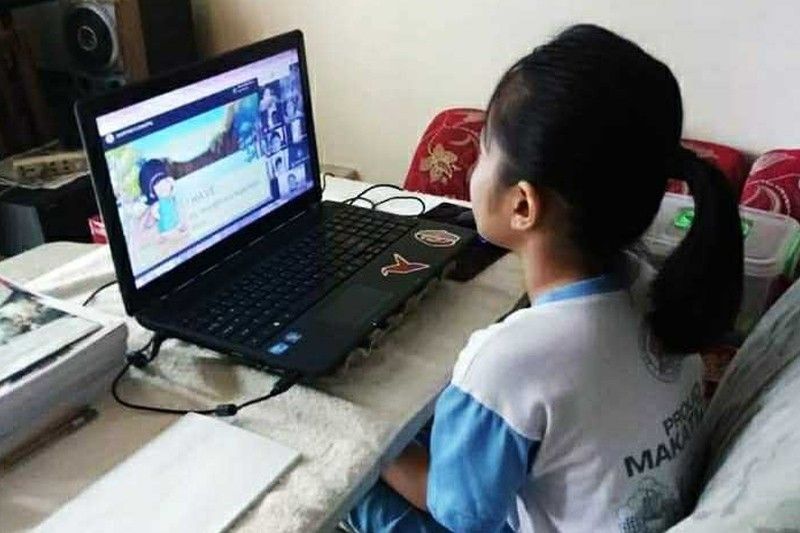Senator wants probe into 'sagot for sale' scheme, warns students will bear brunt of practice

MANILA, Philippines — A senator on Monday called on the Department of Education to investigate reports of what he called the sagot (answers) for sale scheme, where parents hire someone else to answer their children's self-learning modules.
In a statement issued early Monday morning, Sen. Win Gatchalian warned parents engaging in this practice that it would only be their children who would bear the brunt of the aftereffects as their learning and development would be compromised.
Gatchalian cited an earlier report by the Teachers' Dignity Coalition which suggested that struggling parents hire someone else — some of whom they find online — to answer their children's modules.
"Please don't do that because the children are the victims in this. We do not help them to learn by doing this," Gatchalian said.
The senator in his statement added that the Senate Basic Education Committee, which he chairs, has scheduled another hearing on the methodology of assessing learners' performance.
According to the Department of Education, 99.1% of the more than 14 million public school learners passed the first quarter, a figure that excluded data from Metro Manila, Region 7, and the Bangsamoro Autonomous Region in Muslim Mindanao.
However, the senator pointed out that the scenario in Valenzuela is different and more consistent with the low national achievement scores.
"Among Grade 8 learners, the average is about 48% across different subjects. In Grade 9, the average across different subjects is 51%, and 55% among Grade 10 learners, way below the passing rate of 75%," the senator said.
Remote learning in the time of coronavirus
Though the senator acknowledged that the DepEd report was only based on what the regions submitted, he reiterated that there is a need for a better understanding of how learners are evaluated under the distance learning setup, which has been hounded by challenges such as the lack of interaction with teachers and reliable internet connectivity.
Social media is rife with makeshift businesses involving academic commissions. The ostensible academic dishonesty is one thing, but similar businesses all involve people who need to make ends meet as much as the students grappling with the mental strain of remote learning.
Education Undersecretary Diosdado San Antonio said in an earlier Laging Handa briefing that the department had already launched an investigation to validate the reports, stressing that such a scheme will not be tolerated if proven.
"I know this is challenging, but again we need to fully understand the assessment conducted by the DepEd. And we also want to see a per subject analysis because we all know that we need to help our students by looking at their weaknesses in different subject matters," Gatchalian added.
Education officials have long admitted that the online learning setup under the coronavirus pandemic is far from perfect. Factors like internet access, cost and availability of gadgets, and errors in learning resources have been prevalent, and only compounded the existing difficulties for families in community quarantine.
Numerous groups at the beginning of the blended learning setup pointed out that all the modes included under the program involved the purchasing of gadgets, including smartphones, laptops, television sets and transistor radios, on top of the costs of internet connections, electricity and transportation.
However, President Rodrigo Duterte said he believed that the proposal was workable amid the pandemic.
Recent surveys have shown that students' participation in classes is already waning, and experts from the Philippine Psychiatric Association have since acknowledged that they have observed signs of both mental stress from students and parents alike.
It has been 356 days since the first enhanced community quarantine was hoisted. The Philippines is still under the world's longest quarantine.
— Franco Luna with reports from Christian Deiparine
- Latest
- Trending































